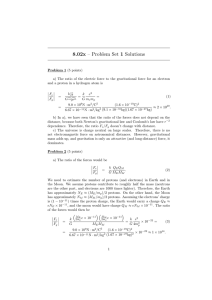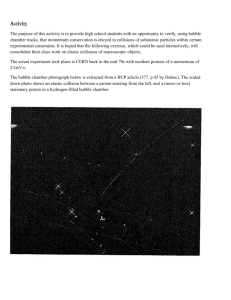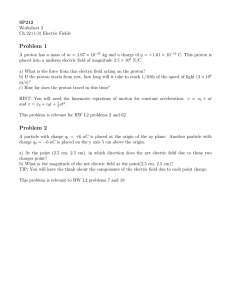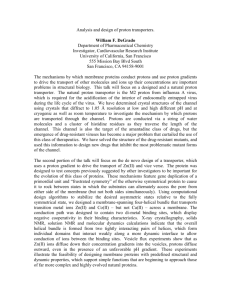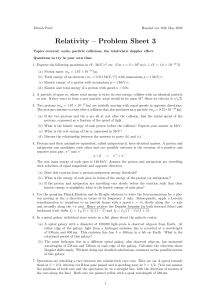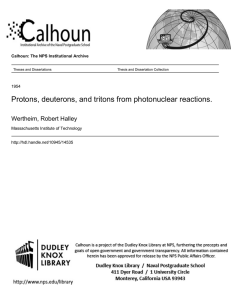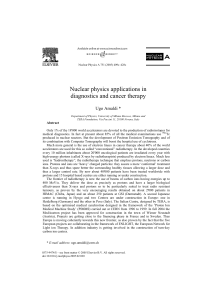We present the calculations for the design of a particle... accelerated proton therapy. Accelerated protons, coming from the thin solid...
advertisement
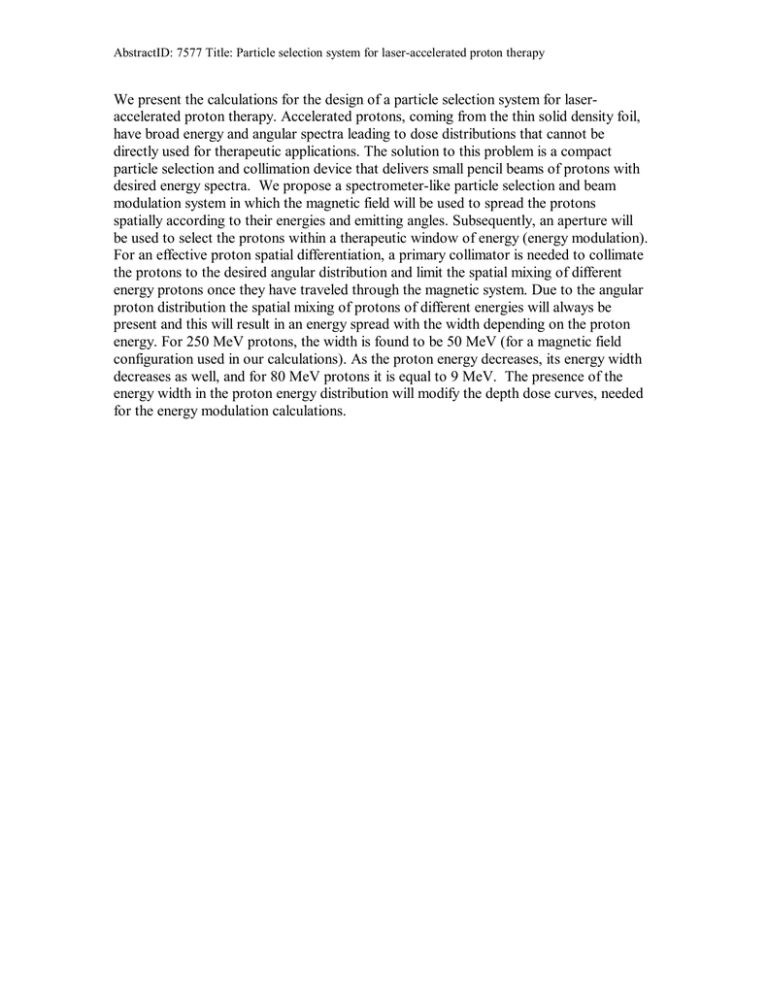
AbstractID: 7577 Title: Particle selection system for laser-accelerated proton therapy We present the calculations for the design of a particle selection system for laseraccelerated proton therapy. Accelerated protons, coming from the thin solid density foil, have broad energy and angular spectra leading to dose distributions that cannot be directly used for therapeutic applications. The solution to this problem is a compact particle selection and collimation device that delivers small pencil beams of protons with desired energy spectra. We propose a spectrometer-like particle selection and beam modulation system in which the magnetic field will be used to spread the protons spatially according to their energies and emitting angles. Subsequently, an aperture will be used to select the protons within a therapeutic window of energy (energy modulation). For an effective proton spatial differentiation, a primary collimator is needed to collimate the protons to the desired angular distribution and limit the spatial mixing of different energy protons once they have traveled through the magnetic system. Due to the angular proton distribution the spatial mixing of protons of different energies will always be present and this will result in an energy spread with the width depending on the proton energy. For 250 MeV protons, the width is found to be 50 MeV (for a magnetic field configuration used in our calculations). As the proton energy decreases, its energy width decreases as well, and for 80 MeV protons it is equal to 9 MeV. The presence of the energy width in the proton energy distribution will modify the depth dose curves, needed for the energy modulation calculations.


